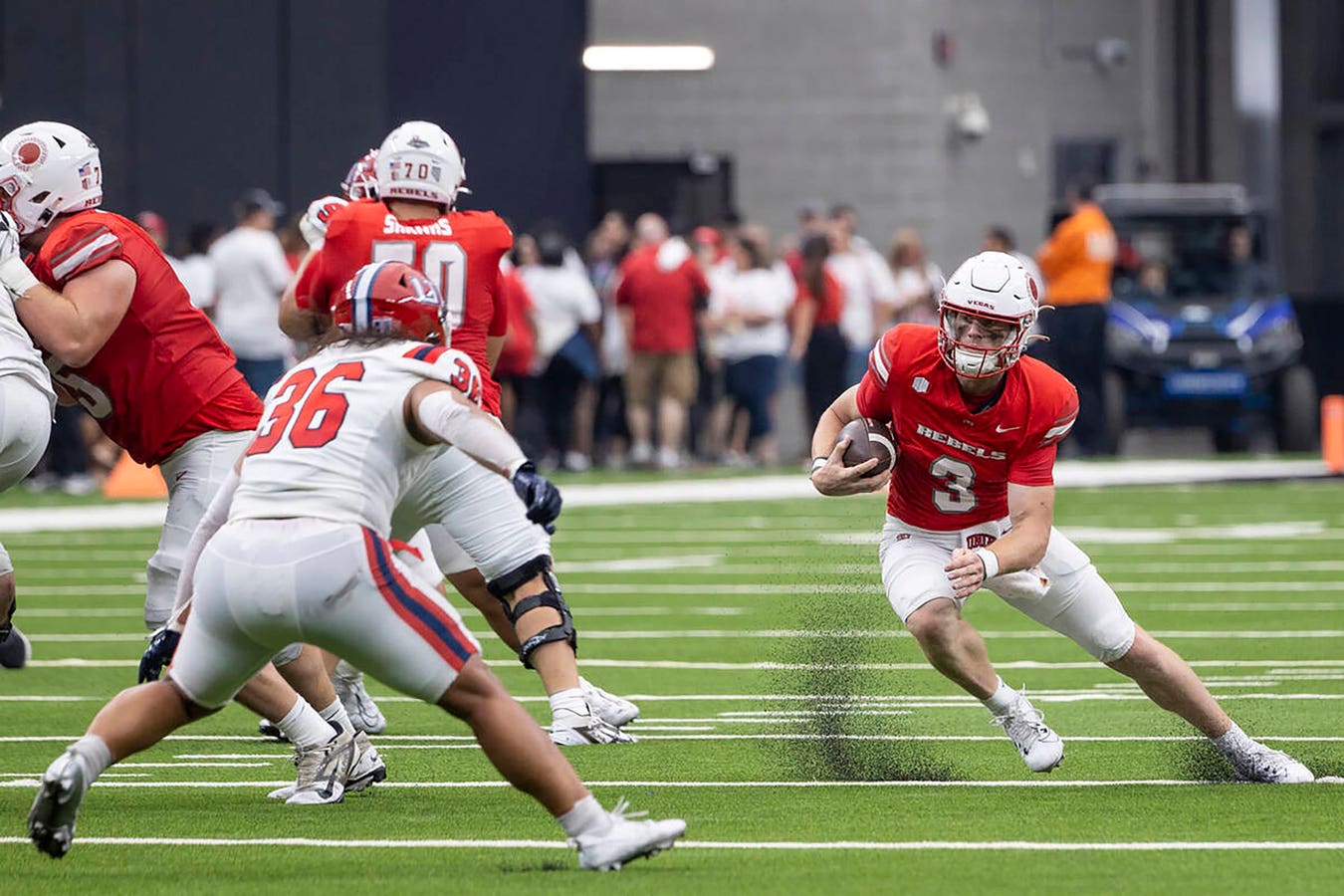UNLV quarterback Matthew Sluka (3) runs with the ball during the college football game against Utah … [+]
A day after UNLV quarterback Matthew Sluka announced he is no longer playing for the Rebels after “misrepresentations” over NIL payments, the attorneys in the House v NCAA legal action released their revised settlement proposal Thursday evening, attempting to assuage Judge Claudia Wilken’s concerns around the term “boosters” in regulating perceptions surrounding athlete “pay for play” overtures.
According to the newly filed brief, the “Injunctive Relief Settlement will result in a foundational transformation to college sports, which will empower and benefit college athletes like never before”, the both sides’ attorneys wrote. “In a sea change to the NCAA’s longstanding and long-defended rules, Division I college athletes will now be eligible to receive benefits collectively approximating 51% of future athletic revenues—comparable to professional sports.”
What may be more impactful is how the plaintiffs attempt to narrow the parameters around the word “booster”. The term “booster” has had an outsized influence on the NCAA for decades, and Judge Wilken was upfront with her concern that both sides had to get a better handle on characterizing what is admittedly a very nebulous term if the case had a chance to receive her blessing.
The attorneys response addressed it this way: “Defendants’ enforcement authority over third-party NIL deals will no longer extend to all third parties (as it did under the Interim NIL Rules) or the broadly defined term “boosters” (as it did under the prior Settlement Agreement presented to the Court). Rather, it will be limited to a narrower group of entities and individuals closely affiliated with the schools (“Associated Entities or Individuals”) to prevent circumvention of the settlement. And, for the first time, any limitations on payments will be subject to neutral arbitration review so that the NCAA cannot act as judge, jury, and prosecutor.”
Neutral arbitration would be a sea change for college athletics. A neutral arbitrator would be able to decide “quickly” whether the proposed NIL transaction between an athlete and an “Associated Entity or Individual” meets the Court’s narrower definition.
Both sides also agree that “existing prohibitions on faux NIL payments” be guided by “clarifying rules that provide cleared and more objective guidance” whether the payments are permissible.
The brief explains engaging an arbitrator will “make sure that the NCAA’s enforcement authority with respect to these third-party payments will no longer be unchecked”. While the headlines may highlight the fact that brief estimates athletes could be earning 51% of future athletic revenues (similar to some professional leagues with collective bargaining), the fact that athletes will no longer be subjected to an organization that has acted as judge, jury and executioner could be bigger news.
“Those arbitrations will occur quickly, and importantly, no penalties can be imposed while arbitration is pending unless the arbitrator determines that good cause has been shown. And if the arbitrator sides with enforcement, then the student-athlete can terminate the NIL agreement at issue to avoid risking eligibility. This process is narrower, fairer, and more administrable than what exists today,” the brief concluded.
This filing provides resolution from both sides one side to Judge Wilken’s queries earlier this month, but it is important to see how the attorneys are structurally building the guardrails around unlimited pay for play. Left unanswered are questions surrounding who would pay the arbiters, how would they be available to thousands of athletes at any given moment, and if there would be an appeals process.
This is article has been updated to reflect that both sides agreed to submit this brief. More information available here.

Leave a Reply